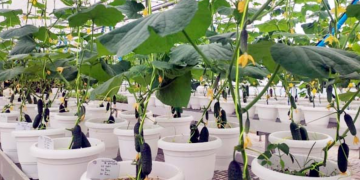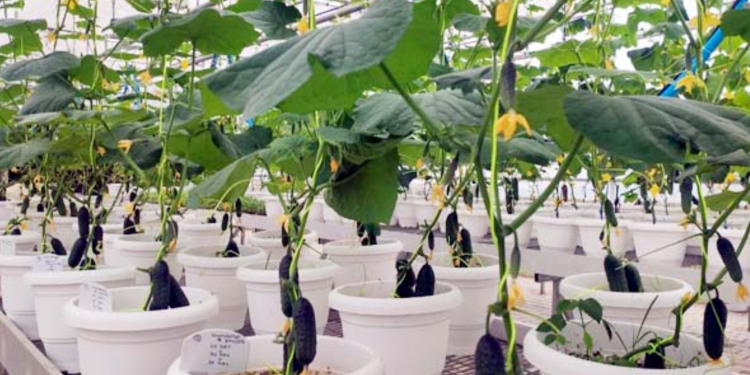Farmers in Palampur, under the guidance of the Agricultural University, are adopting a new crop that promises both economic and medicinal benefits: gherkin (Cucumis anguria L.). This warm season vegetable, a member of the Cucurbitaceae family, is known for its high yield potential and short growing cycle. Native to Africa, Brazil and the US, gherkins are now being successfully introduced to Indian farmers thanks to the efforts of Dr. Praveen Sharma and his team at the Agricultural University.
Gherkins are usually processed like pickles, but they can also be eaten fresh, boiled, fried, or in salads. This versatility makes gherkins a valuable addition to the diet, offering a rich source of nutrients including vitamin A, folic acid, calcium and iron. In traditional medicine, gherkins are used to treat diseases such as abdominal pain, jaundice, hemorrhoids and kidney stones.
Dr. D.K. Watts, vice-chancellor of the Agricultural University, highlighted the potential of gherkin cultivation to increase farmers’ income. He lauded Dr. Sharma and his team for successfully introducing this crop under the National Higher Agricultural Education Project. The goal of the new gherkin division created as part of this project is to train farmers in high-tech production methods and provide them with the resources they need to succeed.
Recent research has shown the economic viability of gherkin farming. According to the Indian Council of Agricultural Research (ICAR), gherkin exports from India are growing steadily and the country is emerging as a significant player in the global market. The short growth period of this crop allows for several harvests per year, providing farmers with a constant income.
The Agricultural University initiative comes at a critical time as farmers seek to diversify their crops and increase their resilience to market fluctuations and climate change. By incorporating gherkins into their crop rotation, farmers can benefit from improved soil health and reduced exposure to pests and diseases, as diversified farming systems are known to promote ecological balance.
Project Gherkin also emphasizes sustainable practices such as organic farming and integrated pest management, in line with global trends toward cleaner agriculture. As the demand for organic and natural products increases, gherkins can become a profitable crop for Indian farmers, especially in Palampur and surrounding regions.
The introduction of gherkin farming in Palampur represents a promising opportunity for local farmers to increase their income and diversify their farming practices. With the support of the Agricultural University and innovative farming methods, the cultivation of gherkins can become the main crop in the region. This initiative not only benefits the economy but also improves nutrition and health, making it a valuable addition to Palampur’s agricultural landscape.































